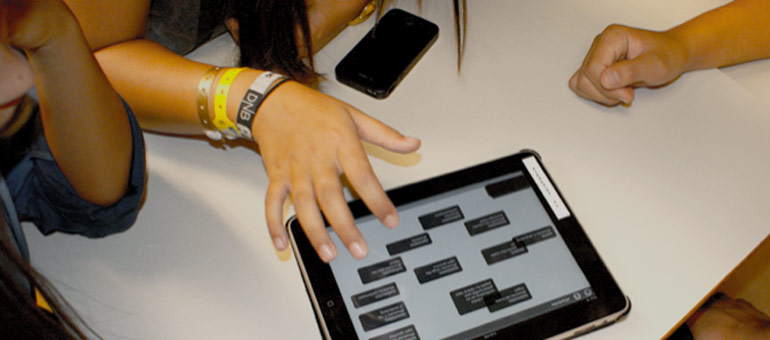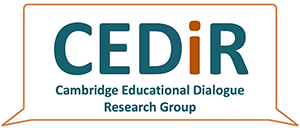About this research strand
The TechCEDiR strand, also known as CamTED (Cambridge Technology and Educational Dialogue), targets the investigation of technology's role in communication, dialogue, and the construction and dissemination of human knowledge. The research within this strand adopts multiple approaches, including but not limited to, design-based research methodologies.
Interdisciplinary in nature, TechCEDiR mobilises insights from various academic disciplines as well as from practical and pedagogical domains. This cross-disciplinary approach allows for a nuanced understanding of educational technology (EdTech) systems from both a theoretical and practical standpoint. Researchers collaborate to develop, analyse, and conceptualise EdTech solutions that have implications for pedagogical practice and theory alike.
One area of particular interest within TechCEDiR is the integration of large language models, such as ChatGPT. Research in this arena explores how these models can serve as tools for facilitating dialogue and learning. The utilisation of language models adds an additional layer of complexity to the educational technology landscape, raising questions about the ethical implications, efficacy, and limitations of integrating artificial intelligence into educational settings.
By investigating these multi-faceted aspects, TechCEDiR contributes to the broader understanding of how technology interacts with and shapes educational dialogue and knowledge creation. The strand serves as a hub for experts and researchers who are interested in the convergence of technology, education, and human communication.
Strand Leaders
Rupert Wegerif and Steve Watson (with others including Alison Twiner).
Programmes include
Human Technology Interface. CEDiR: 2024. Steven Watson
The School of the Humanities and Social Sciences (HSS) has established a suite of broad thematic groups designed to promote the school’s diverse research activity. HSS Framework initiative aims to foster closer connections between researchers and across disciplines, offer improved avenues of communication and strengthen the environment for collaborative research.
Gaming to Development (G2D). Epic Games: 2020-21. Major, Wegerif & Twiner.
G2D examined how the 3D real-time collaboration that young people encounter through gaming can be used in education to prepare them for jobs which, in many cases, may not yet exist. It investigated how these activities can cultivate other competencies, such as the ability to engage in effective dialogue online, and collaborative problem-solving.
Virtual Internships Project (VIP). Industry Partners: 2019-21. Wegerif, Major & Twiner.
In collaboration with colleagues in industry, VIP involved developing and testing an innovative new model of ‘Simulated Virtual Internships’ to investigate the impact this has on how young people (i) engage with the world of work; (ii) develop key competencies related to dialogue and creativity.


